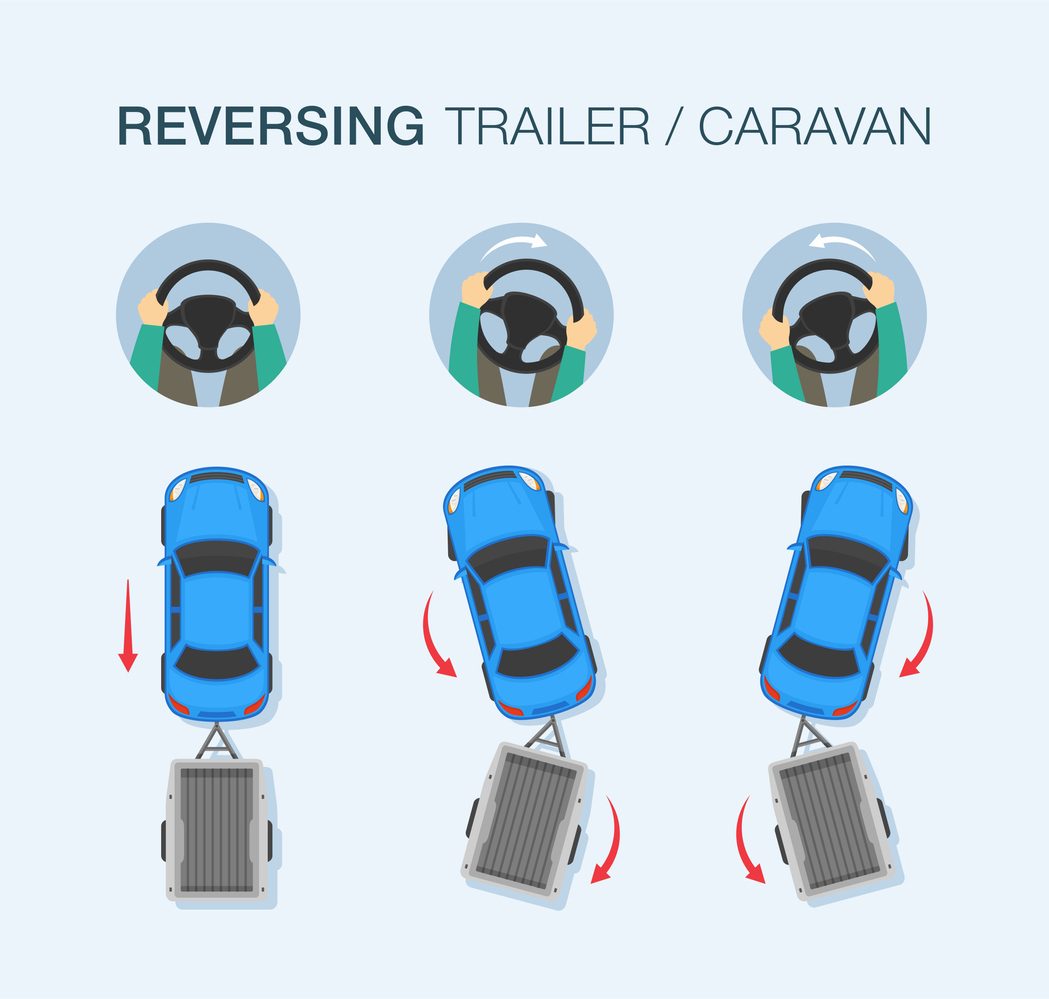
I don’t often pull a trailer with my vehicle and until this past week it had been more than 10 years since I had done so. Anytime I’ve done it in the past, I have gone out of my way to avoid backing up simply because I don’t do it often enough to be good at it. This time I couldn’t avoid it and found myself trying to back up across the middle of a busy road with traffic stopped in both directions and my wife standing on the curb trying her best to guide me where I needed to be (which wasn’t helping at all by the way).
In that moment, I recognized my emotions rising and my ability to manage those emotions slipping away. I was about to do what we talk about as flipping my lid in Dr. Dan Siegel’s hand model of the brain in chapter 1 of The Mandt System. I found myself needing to use some of the de-escalation training techniques I have been teaching for the last 24 years as I wasn’t able to engage in the level of processing and self-control that I needed in that moment, so I pulled away and went for a short drive around the block to get myself together and formulate a better plan.
One of the most important concepts in The Mandt System is the need for staff to recognize and manage their feelings so they can choose appropriate and effective responses to situations they encounter. Often that means stepping back or away to better be able to manage themselves. So often crisis prevention intervention training focuses on changing the behavior of the individual served or restraint training once a person is in crisis instead of prevention and understanding the contribution that staff make to escalated situations.
Some concepts we teach in The Mandt System to help prevent escalation are to:
- Help staff think about how their concept of themselves affects the way they interact with and communicate with others.
- Understand from our R.A.D.A.R. model that before deciding what to do in a situation the first person to assess is ourselves and be aware of our own trauma histories, triggers and signs of escalation.
- Consider how the words we use, how we say them, and what we do while we’re saying them effect the people with whom we are interacting.
In the 30 years that I have worked in human services, I have seen many instances where situations escalated because of what staff were doing as opposed to what was going on with the individual served. Too often, this occurred because the staff failed to manage themselves and did and said things that contributed to the escalation.
If you’re wondering what happened with the trailer, after taking the short drive to remove myself from the stress of the situation and calm down. I came back and reassessed the environment and figured out a way I could take the time I needed to back the trailer to where it needed to be without blocking traffic while I was going it. Within a few minutes I was backed in and ready to load.
When you take the time to affirm your feelings and choose your behaviors, you put yourself in a better position emotionally and psychologically to better assess and have more successful outcomes in stressful situations. This is at the core of The Mandt System Training.
Doug ZehrVogt, Director of eLearning and Technology



